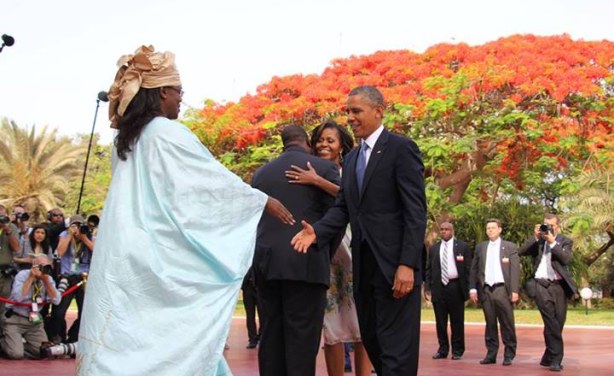
Reports about the visits of the United
States' President Barack Obama to some African countries came as a
relief to many citizens on the continent who might have felt that the
American president, who has African roots, had ignored the continent,
the birthplace of his father since his historic elections of 2008 and
2012 respectively.
In Nigeria, it is the proposed, or cancelled, visit of the U.S. president to the country that has continued to generate mixed reactions from different quarters, with some political pundits calling it a diplomatic victory for Nigeria if he should indeed come amidst the uncertainly that had characterised the Nigerian nation state of recent; made even worse due to the streams of negative stories from major international media.
Others also say if he did not visit the country, then it was going to be a great minus internationally and a diplomatic slap for the country. Looking at the countries he had chosen to visit, they argued, one would say they are not even the strongest or are they regional powers of their respective regions, except for South Africa, the continent's largest economy.
Barack Obama turning his back on Nigeria, many observers say, would be a diplomatic blow and an embarrassment to Nigeria and help to reinforce the belief and emerging trends that Nigeria has been losing diplomatic power on the continent and on the international stage especially with decreasing levels of its major economic power base, oil, and as other countries also discover oil fields which the Americans are so desperately interested in and perhaps may have facilitated these visits.
One thing is clear, whether he visits Nigeria or not, the question we as Nigerians need to ask ourselves today is of what significance or benefits will the U.S. president's visit accrue to us. It is true we export much of our oil, the mainstay of our economy, to his country, but that does not give them the effrontery to dictate to us Nigerians.
In Nigeria, it is the proposed, or cancelled, visit of the U.S. president to the country that has continued to generate mixed reactions from different quarters, with some political pundits calling it a diplomatic victory for Nigeria if he should indeed come amidst the uncertainly that had characterised the Nigerian nation state of recent; made even worse due to the streams of negative stories from major international media.
Others also say if he did not visit the country, then it was going to be a great minus internationally and a diplomatic slap for the country. Looking at the countries he had chosen to visit, they argued, one would say they are not even the strongest or are they regional powers of their respective regions, except for South Africa, the continent's largest economy.
Barack Obama turning his back on Nigeria, many observers say, would be a diplomatic blow and an embarrassment to Nigeria and help to reinforce the belief and emerging trends that Nigeria has been losing diplomatic power on the continent and on the international stage especially with decreasing levels of its major economic power base, oil, and as other countries also discover oil fields which the Americans are so desperately interested in and perhaps may have facilitated these visits.
One thing is clear, whether he visits Nigeria or not, the question we as Nigerians need to ask ourselves today is of what significance or benefits will the U.S. president's visit accrue to us. It is true we export much of our oil, the mainstay of our economy, to his country, but that does not give them the effrontery to dictate to us Nigerians.

0 comments:
Post a Comment